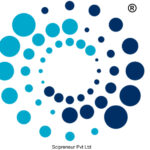
Faster treatment for epilepsy
16 December 2016
Researchers at Duke-NUS Medical School (Duke-NUS) have identified a gene network in the brain, that when disrupted, causes epilepsy. The team’s original “network biology” approach could also possibly provide a quicker and cheaper way to accelerate the discovery of novel drug candidates that are effective treatments.
Led by Associate Professor Enrico Petretto from the Centre for Computational Biology at Duke-NUS in collaboration with Imperial College London, the team’s network-biology approach was able to detect entire pathways, networks of genes and processes of diseases. The technique can predict how disease-networks can be manipulated with drugs and made healthy again.
Epilepsy is a common neurological disorder which afflicts many people who tend to suffer recurring unprovoked seizures. The search for treatment is still ongoing and current research to identify new anti-epileptic drugs has been largely unsuccessful as the method of targeting genes — one at a time — to find suitable targets and develop drugs is ineffective and expensive.
The team began by building gene networks expressed across the human brain with samples from healthy subjects. Following an analysis of a large database of mutations and genes associated with epilepsy, the researchers discovered a gene network associated with rare and common forms of epilepsy. Known as M30, this epileptic-network contains 320 genes and represents a previously unknown mechanism which regulates susceptibility to epilepsy.
The researchers conducted analyses in mouse models of epilepsy, which suggested that the disruption of M30 contributed to the manifestation of epilepsy. The team confirmed their findings through computational approaches based on network-biology, leveraging public data resources to predict the effect of drugs and small molecules on the network to restore M30 to a healthy state. The results suggest that targeting M30 with a combination of drugs may be a viable strategy in treating epilepsy.
Explained Assoc Prof Petretto, “Our approach allowed us to identify a network associated with epilepsy and provide a compelling proof-of-principle by predicting a known anti-epileptic drug to target the network. We were able to do this in a matter of few months only using publicly available data, while a typical effort to identify anti-epileptic drugs would usually take years.”
Assoc Prof Petretto plans to exploit his novel network-biology approach for the discovery of new drugs for specific forms of epilepsy and other untreatable neuropsychiatric disorders. His team will be able to leverage their approach on a larger scale and identify new potentially effective drugs that can be tested in a clinical setting.







Leave a Reply